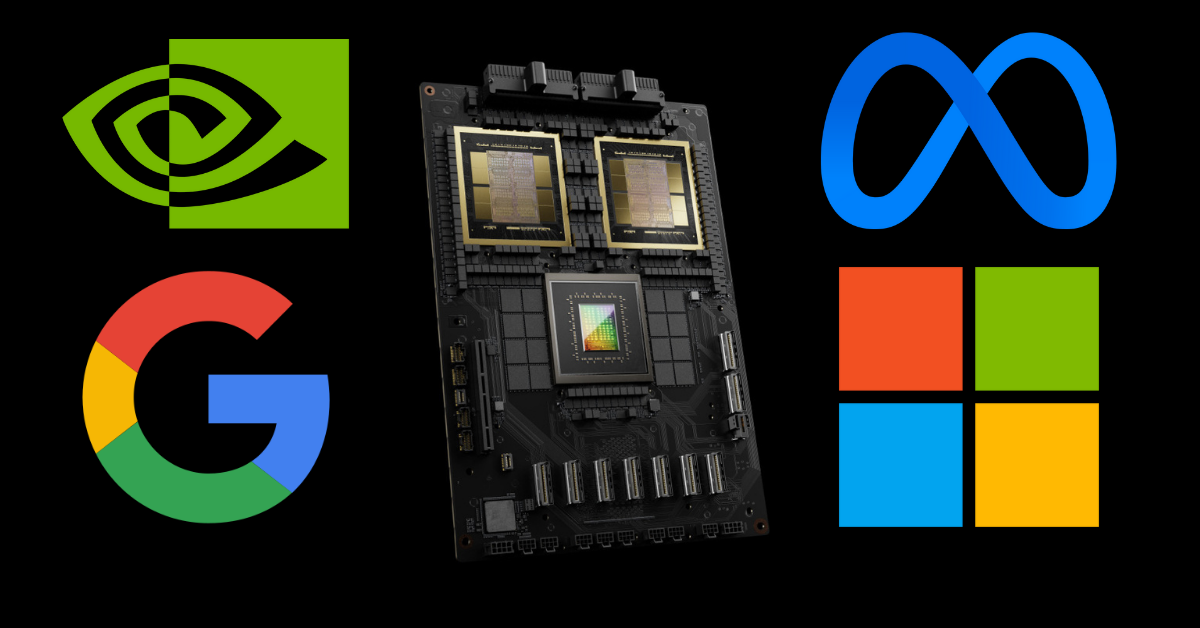Nvidia Corporation, a global leader in artificial intelligence (AI) and graphics processing units (GPUs), has recently encountered a significant setback. The company’s highly anticipated AI chip release has been delayed due to design flaws. This development has raised concerns across the tech industry, particularly for major players like Microsoft, Google, and Meta, who rely heavily on Nvidia’s cutting-edge technology.
The Setback: Design Flaws Discovered
According to a report by Bloomberg, Nvidia’s new AI chip, which was expected to be a game-changer in the AI landscape, has been delayed due to critical design flaws. These flaws were identified during the final testing phases, necessitating a pause in the production process.
The AI chip in question was designed to enhance the capabilities of AI-driven applications, offering unprecedented processing power and efficiency. However, discovering these flaws has forced Nvidia to go back to the drawing board, delaying the chip’s launch and causing ripples throughout the tech industry.
Impact on Major Tech Companies
The delay is not just a blow to Nvidia but also to several major tech companies that were banking on the new AI chip to bolster their AI-driven services and products. Microsoft, Google, and Meta are among the top firms that have been significantly impacted by this delay.
Microsoft
Microsoft, a frontrunner in AI and cloud computing, was set to integrate Nvidia’s new AI chip into its Azure platform. This integration was expected to significantly enhance the performance of AI workloads on Azure, making it more competitive against rivals like Amazon Web Services (AWS) and Google Cloud. With the delay, Microsoft may face challenges in meeting its AI performance benchmarks and timelines, potentially affecting its market position.
Google, another tech giant heavily invested in AI, particularly in its Google Cloud and various AI-driven products like Google Assistant, will also feel the impact of this delay. The new Nvidia AI chip was poised to accelerate the development and deployment of AI models, providing Google with a competitive edge in the AI space. The delay could slow down Google’s AI innovation pipeline, affecting its ability to quickly roll out new features and improvements.
Meta
Meta (formerly Facebook), which is aggressively expanding its AI capabilities for applications in social media, virtual reality (VR), and augmented reality (AR), is another major player affected by Nvidia’s delay. Meta’s ambitious projects in the metaverse and AI-driven content moderation were depending on the advanced processing power of new chip. The delay might slow down Meta’s progress in these areas, potentially impacting its long-term strategic goals.
Market Reactions and Nvidia’s Response
The news of the delay has sparked a variety of reactions in the market. Investors and stakeholders are keenly watching how Nvidia will navigate this challenge. The company has acknowledged the issue and is committed to resolving the design flaws to ensure the chip meets the highest standards of performance and reliability.
The stock experienced a slight dip following the announcement, reflecting investor concerns. However, industry analysts remain optimistic about Nvidia’s ability to overcome this hurdle given its track record of innovation and market leadership.
The Path Forward
While the delay is undoubtedly a setback, it also underscores the complexities involved in developing cutting-edge AI technology. Nvidia’s commitment to resolving design flaws and delivering a robust product is crucial for maintaining its reputation and leadership in the AI and GPU markets.
The company is expected to provide updates on the revised timeline for the AI chip’s release in the coming months. Meanwhile, Microsoft, Google, and Meta will need to adjust their plans and strategies to accommodate the delay, possibly seeking interim solutions to bridge the gap.
Conclusion
The delay of Nvidia’s new AI chip due to design flaws is a significant event in the tech industry, highlighting the intricate and challenging nature of AI hardware development. As company works to address these issues, the tech world will be watching closely, particularly those companies whose AI advancements are intertwined with it’s innovations. The resolution of this issue will impact not only it’s future but also the broader landscape of AI technology and its applications across various sectors.
Frequently Asked Questions (FAQs)
Q1: What caused the delay in Nvidia’s new AI chip?
The delay was caused by the discovery of critical design flaws during the final testing phases of the new AI chip.
Q2: Which major tech companies are affected by this delay?
Microsoft, Google, and Meta are among the major tech companies affected by the delay of Nvidia’s new AI chip.
Q3: How will the delay impact these companies?
The delay could affect Microsoft’s Azure platform, Google’s AI-driven products and services, and Meta’s AI projects in social media, VR, and AR, potentially slowing down their innovation and deployment timelines.
Q4: What is Nvidia’s response to the delay?
The company has acknowledged the issue and is committed to resolving the design flaws to ensure the chip meets high standards of performance and reliability.
Q5: When is the new AI chip expected to be released?
Nvidia has not provided a specific revised timeline yet but is expected to update the release schedule in the coming months.
Q6: How has the market reacted to the news of the delay?
Nvidia’s stock experienced a slight dip following the announcement, reflecting investor concerns, but analysts remain optimistic about it’s ability to overcome the challenge.
Key Takeaways
- Nvidia’s new AI chip was delayed due to design flaws, impacting the tech industry.
- Major companies like Microsoft, Google, and Meta will have to adjust their AI strategies.
- Nvidia is committed to resolving the issue and ensuring a high-performance product.
- The tech world is closely watching for updates on the revised release timeline.
Stay tuned for more updates on this developing story and the latest in AI technology advancements.

